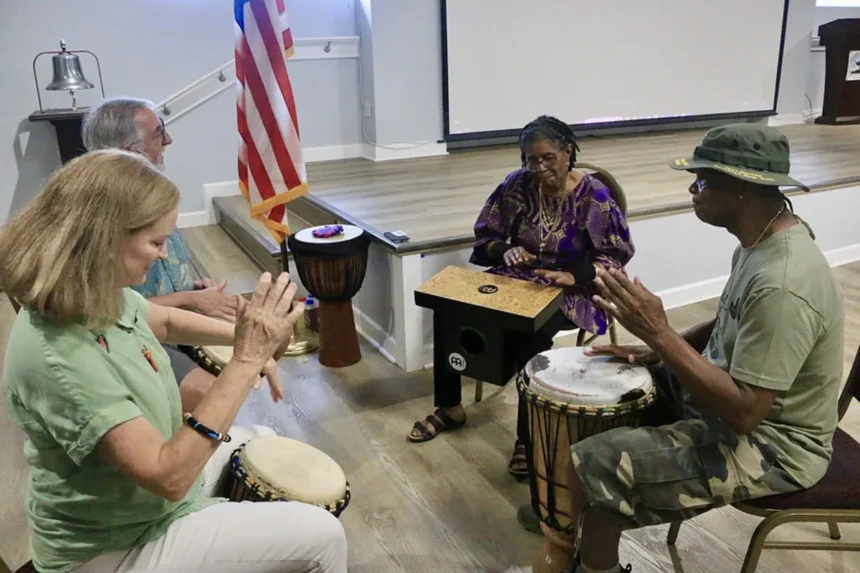Juneteenth, the commemoration of the emancipation of enslaved African Americans in the United States, holds profound significance for the African American community.
It marks a pivotal moment in American history when, on June 19, 1865, Union soldiers arrived in Galveston, Texas, to announce the end of slavery, two and a half years after President Abraham Lincoln’s Emancipation Proclamation.
Since then, Juneteenth has evolved into a celebration of freedom, resilience, and cultural heritage.
In 2024, the African American Cultural Society (AACS) hosts a landmark Juneteenth celebration, reflecting on the journey of African Americans toward equality and justice while honoring their rich cultural contributions.
Historical Context and Significance of Juneteenth
The Emancipation Proclamation and Juneteenth
The Emancipation Proclamation, issued by President Lincoln on January 1, 1863, declared all enslaved persons in Confederate territory to be free.
However, enforcement of this proclamation was uneven across the South, and it was not until June 19, 1865, that enslaved people in Texas learned of their freedom, following the arrival of Union General Gordon Granger’s troops in Galveston.
Juneteenth, therefore, symbolizes the belated but joyous announcement of freedom for the last remaining enslaved African Americans in the Confederacy.
Evolution into a Celebration
Juneteenth celebrations initially began in Texas and spread across the United States as African Americans migrated to other states.
These celebrations included church gatherings, family reunions, parades, picnics, and cultural performances, all serving to honor African American history and achievements while promoting unity and resilience in the face of adversity.
Over time, Juneteenth became an occasion to reflect on the struggle for civil rights and social justice, emphasizing the ongoing quest for equality and liberation.
Federal Recognition
In 2021, Juneteenth was officially recognized as a federal holiday, marking a significant milestone in acknowledging its historical importance and cultural significance.
The designation of Juneteenth as a national holiday underscores its relevance in American history and affirms its place in the national consciousness as a day of remembrance, celebration, and reflection.
The Role of the African American Cultural Society (AACS)

Promoting Cultural Awareness and Education
The African American Cultural Society (AACS) plays a vital role in preserving and promoting African American culture, history, and heritage.
Founded with a mission to celebrate and educate the community about African American contributions to society, AACS organizes events, exhibits, and educational programs throughout the year.
Juneteenth holds a special place in AACS’s calendar, serving as a centerpiece for cultural expression and community engagement.
AACS Juneteenth Celebrations
Each year, the AACS Juneteenth celebration is a highly anticipated event that attracts members of the African American community and allies from across the region.
The celebration features a diverse range of activities, including historical presentations, musical performances, dance recitals, art exhibitions, and culinary delights that showcase the richness and diversity of African American culture.
Fostering Community Spirit
Beyond its cultural significance, the AACS Juneteenth celebration fosters a sense of community spirit and unity among attendees.
It provides an opportunity for people of all backgrounds to come together, learn from one another, and celebrate the shared values of freedom, equality, and justice.
Through community engagement and collaboration, AACS promotes social cohesion and strengthens bonds within the African American community and beyond.
The Price of Freedom: Reflections on African American History and Struggle
Remembering the Past
Juneteenth serves as a poignant reminder of the struggles and sacrifices endured by African Americans throughout history.
From the brutality of slavery to the challenges of segregation and discrimination, African Americans have faced immense obstacles on the path to freedom and equality.
Juneteenth commemorations include solemn reflections on this history, honoring the resilience and courage of ancestors who fought for justice and liberation.
Celebrating Achievements and Contributions
While Juneteenth acknowledges the hardships of the past, it also celebrates the achievements and contributions of African Americans to society.
From literature and music to science, politics, and beyond, African Americans have made significant cultural, social, and economic contributions that have enriched the fabric of American life.
Juneteenth celebrations highlight these achievements, recognizing the diversity and ingenuity of African American culture.
Honoring Cultural Icons and Heroes
Juneteenth is an occasion to honor cultural icons, civil rights leaders, and community heroes who have played pivotal roles in advancing the cause of freedom and equality.
From Harriet Tubman and Frederick Douglass to Martin Luther King Jr. and Rosa Parks, Juneteenth pays tribute to those who have inspired generations and paved the way for progress.
Their legacies continue to inspire activism and advocacy for social justice.
Contemporary Challenges and Opportunities
Addressing Systemic Inequities
While Juneteenth celebrates progress, it also underscores the enduring challenges faced by African Americans in achieving full equality.
Systemic inequities in education, healthcare, employment, housing, and criminal justice persist, disproportionately affecting African American communities.
Juneteenth serves as a call to action to address these disparities and advocate for policies that promote equity, opportunity, and justice for all.
Empowering Future Generations
Juneteenth is a time to empower future generations to continue the fight for equality and justice.
Through education, mentorship, and community engagement, African American organizations like AACS inspire young people to embrace their heritage, pursue their dreams, and become agents of change in their communities.
By nurturing leadership and activism, Juneteenth celebrations cultivate a legacy of resilience and empowerment for future generations.
Conclusion: The Continuing Legacy of Juneteenth
As the African American Cultural Society celebrates Juneteenth in 2024, the occasion serves as a poignant reminder of the price of freedom and the ongoing quest for justice and equality.
Through commemoration, celebration, and reflection, Juneteenth honors the struggles and achievements of African Americans while promoting unity, resilience, and cultural pride.
The AACS Juneteenth celebration exemplifies the spirit of community, education, and empowerment that defines this historic day.
As we look to the future, Juneteenth continues to inspire hope, unity, and a commitment to building a more inclusive and equitable society for all.

